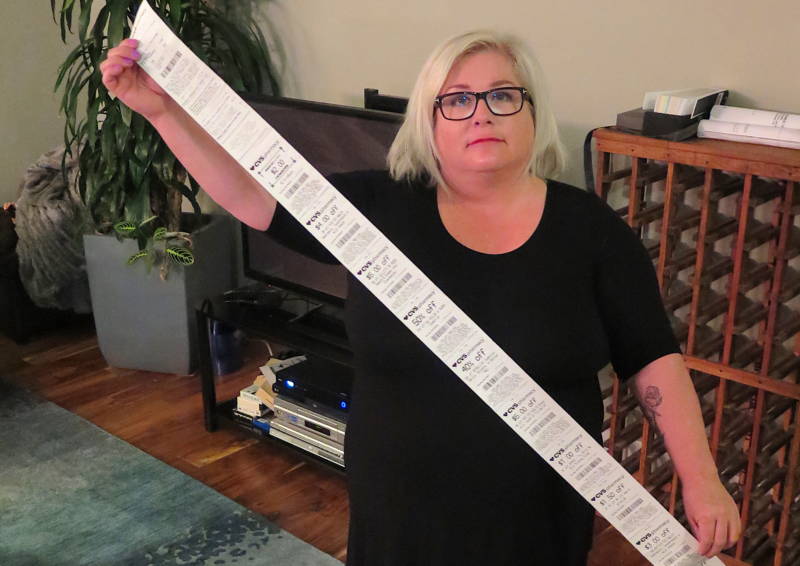Receipts increasingly are made of thermal paper, and thus printed without ink. A chemical sometimes used to coat thermal paper, Bisphenol A (BPA), mimics estrogen and has been linked to cancer; in 2012, the U.S. Food and Drug Administration banned its use in baby bottles.
Receipt paper now more commonly contains Bisphenol S (BPS), a replacement for BPA that some recent studies, including one from UCLA, indicate may be just as harmful.
Opponents say this is yet another hurdle for California small businesses, and a privacy concern for customers.
“It’s trying to reduce paper waste and that’s commendable, but we just want to make sure that in the process we’re not creating a big digital trail for everyone who goes into a drug store,” said Bennett Cyphers, a staff technologist at the Electronic Frontier Foundation, a nonprofit digital rights group.
“If the business needs to collect some kind of contact information, what do they do with that data? It’s going to be a field day for data brokers, data about what people buy and who’s buying what and when. We’d really like that not to be the case.”
Receipts account for millions of pounds of trash waste, and an estimated 9 billion gallons of water, according to Green America, an environmental group supporting the bill.
“We don’t really need to use that paper and definitely that water,” Ting said. “We can really save those resources for something else.”
Advocates say Ting’s bill is an easy remedy. “It’s tackling one of the lowest hanging fruit,” said Nick Lapis, director of advocacy for Californians Against Waste.

